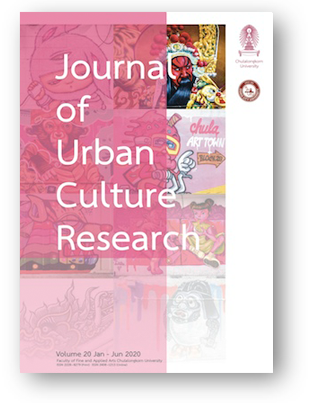De-Academizing Organology Among Particular Research Communities in Urban Context
DOI:
https://doi.org/10.14456/jucr.2020.5Keywords:
De-Academizing, Research Communities, Organology, Herder, Urban ExperienceAbstract
Taking organological research and display of outcomes in China, Vietnam, and Malaysia as example, this paper is to highlight burning issues regarding the purpose and meaning of the discipline in the context of research communities experiencing urbanity. Methodologically, this paper argues mainly in dialogue with the discussion on transcultural musicology. In the mentioned region, urban museums, archives, and universities are widely modeled according to successful academic institutions of supposedly global importance. The perspective of expected success needs a radical turn in order to serve social sustainability and a growing knowledge base that is inclusive regarding subjects and objects under research. The radical turn in de-academizing derives from the questioning of basic assumptions that once started with an uncritical praise of Herder’s groundwork in defining ‘people’ and finds expression in the social engagement with ethnic minorities, migrants, diaspora, and other categorically constructed groups of people in specific nation states and their urban centers.
Downloads
Published
How to Cite
Issue
Section
License
Authors authorize the JUCR to publish their materials both in print and online while retaining their full individual copyright. The copyright of JUCR volumes is retained by Chulalongkorn University.
The views and opinions expressed herein are those of the individual author(s) and do not necessarily reflect the policies or opinions of the Journal (JUCR), it editors and staff, Chulalongkorn University, or Osaka Metropolitan University.








